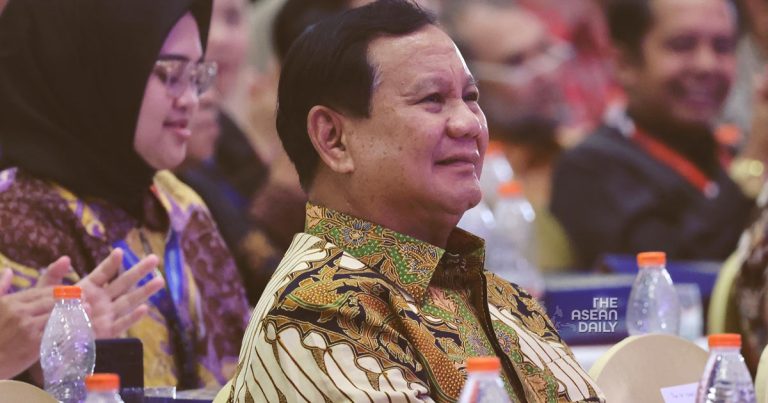16-2-2024 (JAKARTA) Following his proclaimed victory in the February 14 presidential election, Prabowo Subianto faces the delicate task of balancing economic cooperation and potential nationalistic pressures in Indonesia’s relations with China. Prabowo, who secured around 60 per cent of the vote based on unofficial quick counts, is expected to maintain the economic and foreign policies of the incumbent president, Joko Widodo.
Prabowo’s softer stance on China, particularly during his tenure as defence minister when Chinese vessels encroached into the Natuna Sea, sparked criticism. However, analysts anticipate continuity in Indonesia-China relations, given the robust foundation established by Widodo over the past decade. Former Indonesian ambassador to China, Sugeng Rahardjo, cited a “strong foundation” and emphasized the continuation of existing policies.
China has become Indonesia’s top trading partner under Widodo’s leadership, with annual trade surpassing US$130 billion in 2022. Additionally, China ranked as Indonesia’s second-largest investor in 2022, contributing US$8.2 billion to the nation’s economy. Notably, the US$7.2 billion high-speed railway connecting Jakarta to Bandung, a Belt and Road Initiative project, symbolizes the deep economic ties between the two countries.
Dr Muhammad Zulfikar Rakhmat, a researcher studying China-Indonesia relations, predicts Prabowo will view China as a crucial partner, aiming to strengthen cooperation between the nations. The economic significance of China to Indonesia, with funding for development and infrastructure coming predominantly from China, is expected to guide Prabowo’s pragmatic approach.
Despite the anticipated pragmatic stance, Prabowo may face nationalistic pressures on sensitive issues like the Natuna Sea dispute and Indonesia’s stance on China’s policies towards Uighur minorities. The unpredictability of Prabowo’s personality, demonstrated by unconventional proposals like the demilitarised zone suggestion in Ukraine, adds an element of uncertainty to Indonesia’s foreign policy.
Associate Professor Kei Koga suggests that Prabowo, while potentially unpredictable, is likely to maintain Indonesia’s basic foreign policy stance, emphasizing regional autonomy without aligning strongly with either the US or China. Regarding the Natuna Sea dispute, experts believe Prabowo will adopt a cautious approach, potentially escalating if China’s posture becomes provocative.
Dr Leo Suryadinata from ISEAS – Yusof Ishak Institute emphasizes that Prabowo aims to safeguard Indonesian territorial integrity while avoiding alignment with major powers. The positive tone in Chinese state media reports on Prabowo’s projected victory suggests an expectation of continued economic gains and cooperation.
As Prabowo steps into the presidency, the delicate balance between economic interests and potential nationalistic pressures will shape the trajectory of Indonesia-China relations. Official election results are expected by March 20, providing a clearer picture of the direction Prabowo’s presidency will take.




